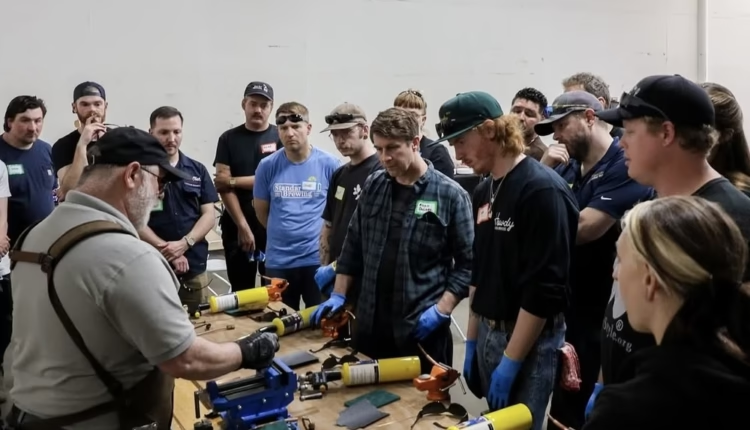Independent Coffee Technicians Form Historic Service Layer Cooperative
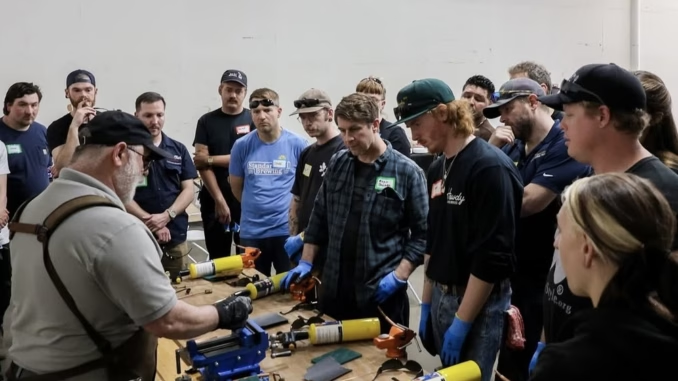
The role of the coffee technician has long been undervalued, but the new co-op is seeking to change that. Today, we hear from board member Spencer Perez to learn more.
BY EMILY JOY MENESES
FOR BARISTA MAGAZINE
Photos courtesy of Service Layer Cooperative unless otherwise noted
In April, members of the Service Layer—an affinity group for specialty-coffee equipment technicians—announced the formation of the Service Layer Cooperative (SLC). The co-op will focus on recruitment, technician education, and strategic vendor partnerships, and plans to demonstrate the benefits of buying equipment through member technicians. The SLC is open to any technician or company owner engaged in specialty-coffee equipment support and not owned by venture capital or private equity.
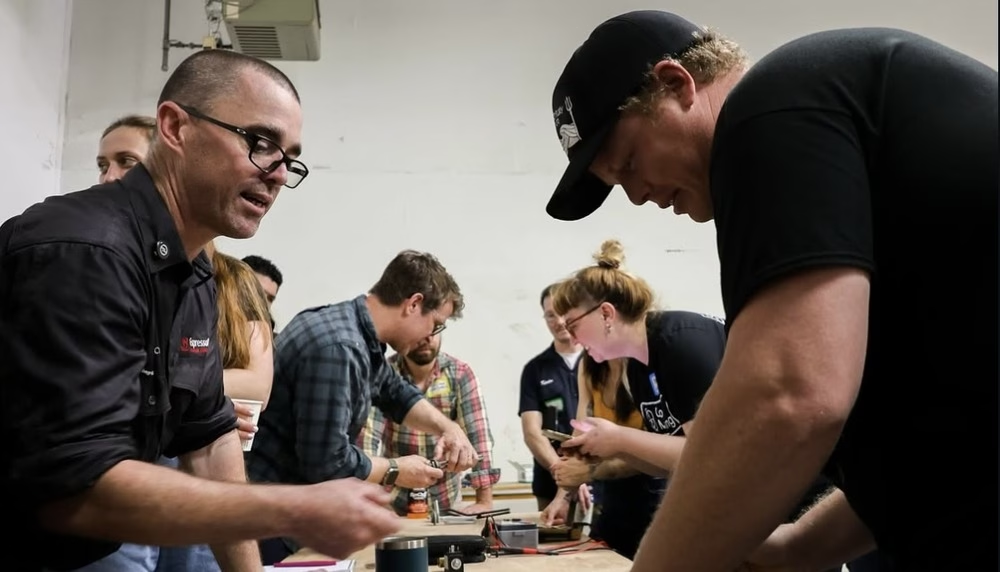

Born from Necessity: The Formation of the Cooperative
When reflecting on what initially inspired the creation of the SLC, Spencer Perez, SLC interim board member and owner of Chattanooga, Tenn.’s Coffee Machine Service Co., stresses that the role of the coffee technician is too often undervalued, and it can be hard to turn the job into a long-term career.
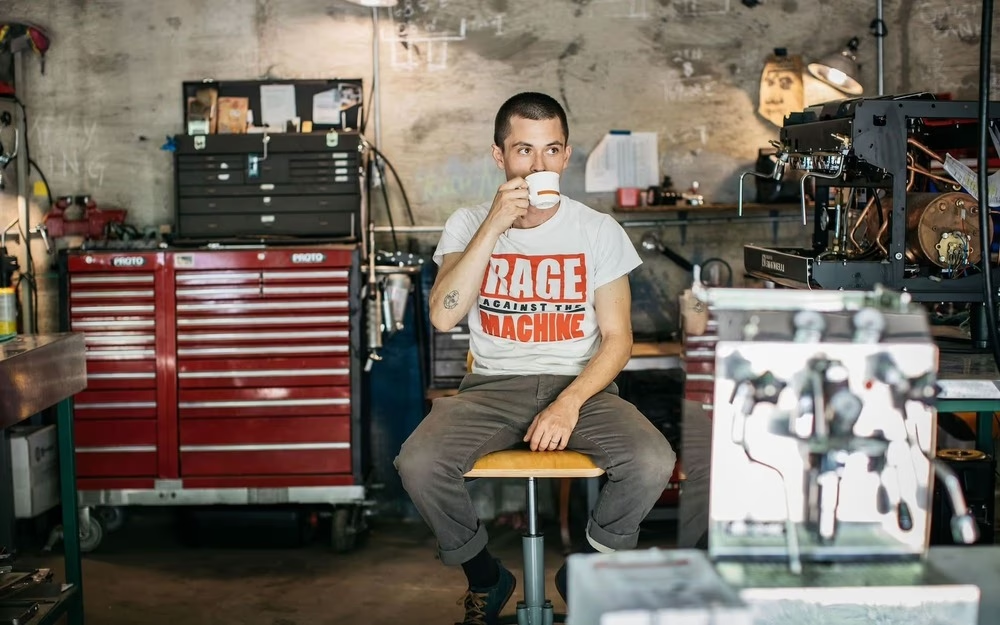

“Fundamentally, the SLC came out of a need many technicians feel to unite in service of our trade, which is often exploited to the benefit of the industry. It’s difficult and expensive to do this job well, and even harder to develop a sustainable business around it,” Spencer says. “The movement started with a recognition of the market forces with which we compete to earn a living, an examination of the cultural habits that encourage even inadvertent exploitation, and a living discussion of what it means to do this job well. SLC hopes to continue those conversations.”
A Focus on Unity
The new cooperative will differ from the Coffee Technicians Guild (CTG), which was founded and then discontinued along with every other coffee guild by the Specialty Coffee Association (SCA). “I can’t speak for the collective here, but I think the (Coffee Technicians) Guild was (manipulated) and its most passionate champions hamstrung by the SCA (a nonprofit organization that operates the for-profit global World of Coffee events), which owes a large part of its influence and growth to volunteers,” Spencer explains.
“The work of (longtime respected coffee technicians) Marty Roe, Hylan Joseph, Brady Butler, and other dedicated forebears who ran the CTG continues to be a rich part of the legacy of our trade,” he continues. “The techs who got together (to form the SLC) wanted more access to professional development and more advocacy, with less oversight from private interests. It turns out many others did, too.”
Spencer shares that the SLC plans to build out more programming than the CTG offered, and to pay their instructors fair wages rather than expecting them to volunteer. He explains that member dues will go directly toward funding these efforts. “We’re a cooperative, and the board will remain proactive in opening clear channels for members to shape the future of the org,” he says.
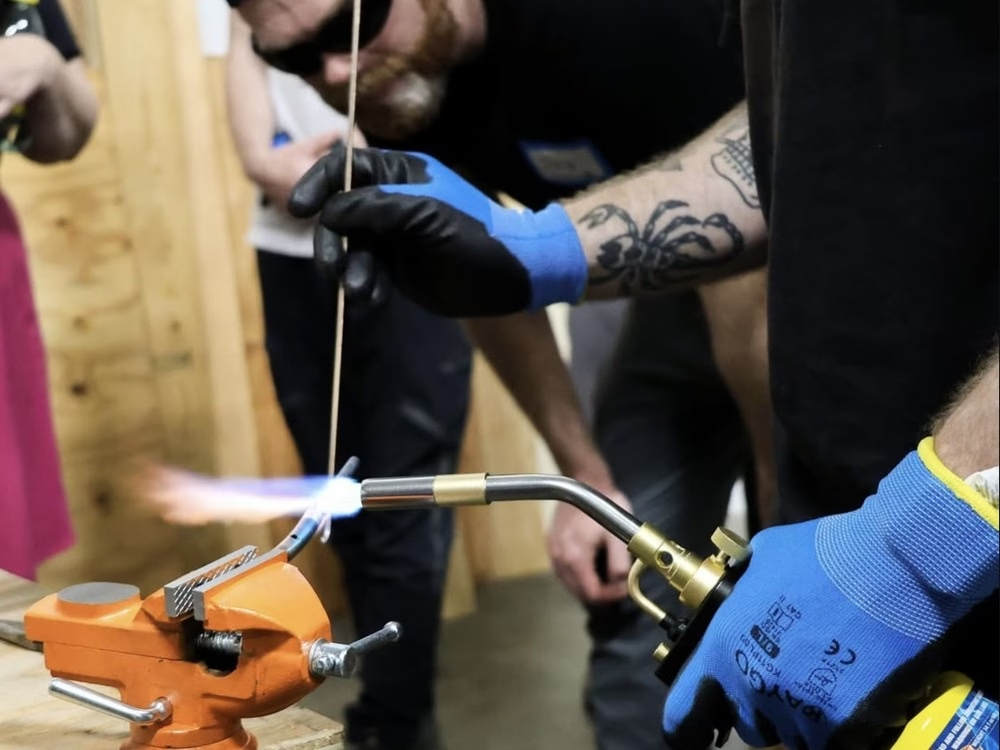


Short-Term Goals + Looking to the Future
Spencer shares that, this year, the SLC will focus on recruitment, forming trade agreements with allied vendors, and educational programming. The cooperative has already hosted various workshops, including one hosted by SteamVolt Lab in Chicago on advanced applied electrical theory and PCB repair, timing it to coincide with the 2024 Specialty Coffee Expo when coffee professionals would already be in town.
While the SLC is still relatively new, Spencer notes the reassurance and support it has provided for hundreds of coffee technicians already. The SLC hosted meetings and a happy hour during the Specialty Coffee Expo in Houston in April, where all techs were welcome to attend and learn what the collective was all about.
“The future of SLC, or anything, is unclear. Personally, this line of work has been a rich medium for exploring (my) relationship to my communities, my body, and my spirit,” Spencer says. “Since I joined the SLC, I know I’m not alone in that. This can be immensely rewarding work, and we want to clear paths into this trade for others who might feel the same, then support them in their journeys.”
This article originally appeared in the June + July 2025 issue of Barista Magazine. Read more of the issue online here for free.
Subscribe and More!
As always, you can read Barista Magazine in paper by subscribing or ordering an issue.
Read the June + July 2025 Issue for free with our digital edition.
For free access to more than five years’ worth of issues, visit our digital edition archives here.
Source: Barista Magazine



